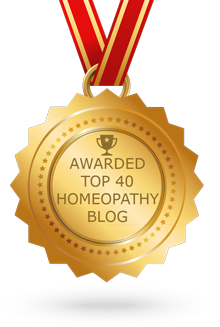Recently, there have been many blogs about a genetic condition called MTHFR. Even so, you may not have heard about it. It’s up there with pyrrole which is another disorder which has seen increasing interest. More and more of our children (and often adults) find that they have to work harder just to maintain a base-line of health. There are more and more of these genetic conditions being discovered every day as we explore the intricacies of the human genome in more detail. As a result, we are beginning to see how these genes are influencing our health on all levels.
So, what exactly is MTHFR?
If we use our imaginations a little too much, it could even sound a little rude! The initials actually stand for methylene-tetrahydrofolate reductase. This mouthful is the name of a gene that codes for (or, in other words, holds the “recipe” for) an enzyme, which plays a very important role.
To put it in a nutshell, this enzyme converts the folate we eat into its active form, by sticking a methyl group onto it. This methyl group is vital for the proper function of folate in the body for a whole number of reasons, and you can click here for more information on this very interesting and enormous topic.
You may have heard about folate, because it’s now very well known that adequate folate is vital for cell division and function. Babies born to women who are folate deficient have been found to have a high rate of birth defects known as neural tube defects. But folate has far more functions than just this.
For someone with an MTHFR defect, taking dietary supplements of folate (which are usually in the form of folic acid), is not likely to help them in the slightest. In some cases, folic acid has actually been found to be downright harmful in a MTHFR defect, as the body has to somehow metabolise it and get rid of it without the full spectrum of tools to deal with it.
What has this got to do with homeopathy?
One of the aspects of folate which interests me as a homeopath is its role in amino acid metabolism. Which is all very nice, I hear you say, but what has that got to do with homeopathy?
Well, one of the areas where homeopathy shines is in emotional/mental wellbeing. There are some essential amino acids which form the basis of key neurotransmitters. The activated form of folate is needed to help synthesise them, or for their successful use in the body. These neurotransmitters regulate moods, feelings, energy and anxiety levels. So, I guess you can now see what I’m getting at here.
Many people who have this genetic defect in its various forms, tend to suffer from emotional instability in one way or another. It manifests as anxiety, depression, anger issues or obsessive disorders (among the more common issues). Having a MTHFR genetic mutation can increase one’s likelihood of being more prone to a variety of emotional challenges.
This can often lead a person into substance abuse if they are not adequately supported. This poses further problems in someone who has the MTHFR defect, as another role of activated folate is to help support detoxification pathways.
So, imagine a common enough scenario. You have a person with the MTHFR genetic defect. They suffer from mental illness. There are plenty of articles out there about how important good nutrition is for optimizing mental health. But what about the influence mental health has on dietary habits? I know what an effort it is to get good, nutritious food on the table at the best of times.

For someone with a mental health issue, I could only just imagine what it would be like to consistently prioritise good nutrition, let alone saying no to that extra drink or recreational drug on offer. Especially during the more challenging times. The added load of toxicity from a poor diet and recreational substances, combined with the inability of the body to adequately clear even the basic toxins, leads to a state where the all of the body’s systems begin to struggle.
A high toxic load carried by a body will often cause that body to break down where it is most vulnerable. Where a body is most vulnerable depends on that person’s underlying individual tendencies. This is now my doorway back into the subject of homeopathy.
Homeopathy is a natural therapies modality which specializes in addressing a person according to their individual underlying tendencies. This means that homeopathy can be used in a situation like MTHFR to assist a person in strengthening their underlying vulnerabilities to better withstand the issues caused by their genetic disorder.
The point of view of epigenetics
You could also explore this phenomenon from the point of view of epigenetics. This is a relatively new and explosively growing field, which examines the effect of lifestyle, emotional and environmental factors on the way our genes express themselves. Epigenetics is showing some promise in providing the basis of more effective treatment of many conditions previously thought to have no hope of resolution.
But, I hear you ask, couldn’t you just supplement the active form of folate for the body to use and then all would be fine?
Should you supplement the active form of folate or not?
The short answer to that is yes… and no… There are now many different suppliers of the active form of folate around the world. Some people find huge relief in nutritional supplementation alone. It is also commonly found that tailoring the exact dosage of the activated folate can unfortunately be very challenging in many people, and sometimes supplementing can prove more problematic than not.

There are many reasons why this occurs. It may have to do with the specific nature of the dysfunction of a particular individual’s gene. It may have to do with how sensitive a person is on a general level. It may be due to a whole raft of other issues which, combined together, make up that person’s underlying individual tendencies… Stop me if you’ve heard this before.
You may think that my reasoning above makes me reluctant to supplement for this condition. Actually, I am very enthusiastically supportive of supplementation if it helps. I am even more enthusiastic about the concept of using cautious levels of supplementation alongside individualized homeopathy, as well as sitting down for a good old chat, to offer a more holistic approach to management of this condition.
Managing MTHFR can prove to be a whole lot more complex than just taking one supplement. This is because we are more than just a single gene. We are an amazingly complex interplay between not only our countless genes (which also depends on which combinations of those genes are switched on or off), but also how those genes interact with the amazingly complex outer environment around us.
Whichever way you look at it, we are far more than just our diagnoses, and this is what makes us beautifully human.
- The importance of Muscle Mass in menopause - 12/03/2025
- Penny’s gluten free bread recipe - 14/10/2024
- Children and bedwetting: What can parents do to help? - 01/10/2024




Leave a Reply